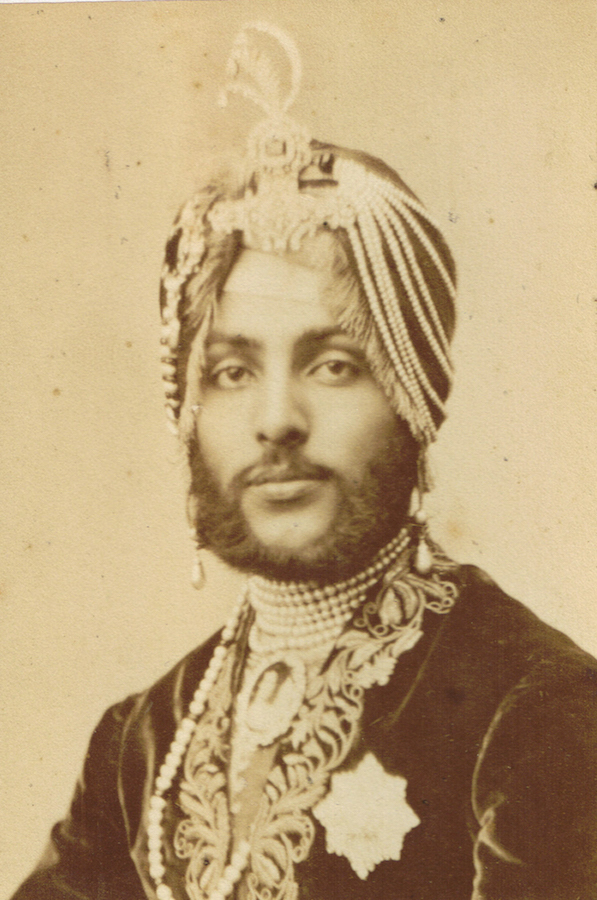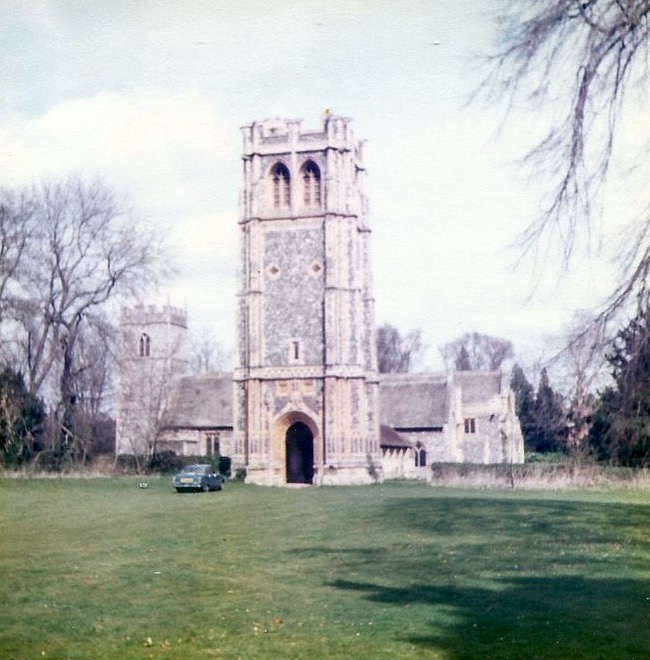When I was a young child from about the age of 1 through to 10yrs, I lived on a country estate. Sounds rather posh, right?
Actually, it was (and still is) a large working farming and forestry estate called Elveden, right on the Norfolk and Suffolk border.

Today, it’s well known for its Christmas trees, Centre Parcs, and finally getting its sweeping A11 bypass on the way to Norwich, but back then, it was my world. We lived in a red brick former gatehouse on the East side of the village, and my playground was acres of swaying cornfields and pine forests. We’d take long bike rides to see our neighbours, and what seems unbelievable today, we’d run across the A11 to go to primary school each day.
A few years ago, I discovered that my paternal Brightwell family had also been resident at Elveden almost 200 years earlier, when my 4x Great Grandfather John Brightwell was born and baptised there with his siblings during the 1780s. A fantastic coincidence!
Another coincidence happened earlier today when I received an email telling me about a new BBC Four documentary, and it’s piqued my interest because it’s all about one of Elveden’s most famous residents.
The programme is titled ‘The Stolen Maharajah: Britain’s Indian Royal’ that’s on BBC Four this Sunday 12th August 2018. Depending on your territory and licence, some of you may be able to watch it online.
The Maharajah
Born in Lahore in the Sikh Empire (now Punjab, Pakistan) in 1838, Prince Duleep Singh became Maharajah at the tender age of just 5 years old after the death of his father. He would turn out to be the last Maharajah of the Punjab, who was taken into the care of an official of the British Empire. He even had Queen Victoria as his godmother.

He surrendered his Sikh religion and signed away his ancient kingdom to the British – a decision he would come to regret. Instead, he would become a wealthy English country gentleman and part of the social elite, with his own country estate at Elveden.
His estate drew large shooting parties, where the social elite including the Prince of Wales (later King Edward VII), Duke of Leicester, Duke of Athol, and numerous others during the 1870s. He really was in with the heights of British society.

However, eventually his relationship with Britain turned sour, and he would eventually leave for Paris.
I haven’t seen the documentary yet myself, but I look forward to it. The promo blurb I’ve been sent reads:
This is a documentary about the last Maharajah of the Punjab, Duleep Singh, who was wrenched from his mother’s arms as a child in the 1840s and put into the care of an official of the British Empire. Growing up in a colonial enclave in India, the boy king abandoned his Sikh religion and signed away his ancient kingdom to the British – decisions he would come to bitterly regret. He moved as a teenager to Britain, where Queen Victoria became his godmother. Duleep Singh lived most of his adult life here as a supremely wealthy English country gentleman, part of the British social elite. But, in time, his relationship with Britain turned sour. This documentary retraces the journeys of Duleep Singh and his family: from the royal palaces of the Punjab, to royal palaces in Britain, to his own English country estate, Elveden in Suffolk, to bohemian Paris. The programme uses recently re-discovered letters by Singh, letters and diaries written by those whose knew him, extraordinary photographs and surviving artefacts. We interview historians to get at the motives and inner life of Duleep Singh as he set out to recover his Sikh heritage and turn his back on his colonial past. This is a story from the age of Empire about someone whose life was defined by those historic forces.
The Maharajah’s legacy in Elveden
Whilst my lifetime did not overlap with the Maharajah (he died in 1893, in Paris, and I arrived 80 years later), the impact of his time in Elveden surely did. When he arrived, the Georgian house was vastly upgraded to become a huge hall dressed in Italian styled exterior and complete with some intricately marbled Indian-styled rooms. Staff were installed and with them came their families all needing to be housed in houses like my childhood one.
I was really fortunate to tour the inside of Elveden Hall just days prior to the Christie’s Auction of the house contents in 1984, along with my fellow primary schoolmates. I remember it being huge, and beautiful, even though he had not lived there for decades.

I also remember being dared to ring the doorbell by my sister once on a walk past the front door (it was a daily route to school, right by the front door). I pressed it, heard it ring inside, and then some clunking sounds. I ran for cover behind my mother, and a bewildered caretaker and his daughter emerged.
The Maharajah also helped to upgrade the parish church in 1869 to cater for all the extra residents and staff in the village (it was further extended in 1904). The church sits just across from the hall, and it’s here where he is buried with some of his family.
I returned there in 2012 for my second cousin’s christening.

Whilst I can’t see any of my Brightwell ancestors still resident in Elveden around the time that the Mahrajah was resident, it’s clear that this Sikh Prince went on to have a huge impact on the place they once knew; the place I knew and loved; the British Empire; and the Sikh community.
I’ll definitely be watching.


One of those incredible stories, even more so through the authentic eyes of yourself, processing memory, artefacts, changing epochs and new realisations.
LikeLike
Thanks for reading. I think my sister has the photo album from the tour inside the Hall, it was beautiful, although aside from some interior marble-work, and a large painting in the entrance hall, apparently not much else represented his time there. During WWII it was commandeered into the war effort, and unless i’m mistaken, it took a bomb on the East wing. The remnants remained during the 80s of things like the ornamental pond, the water tower, the ice house, and the aviary. It often turns up in films these days – The Living Daylights, and Tomb Raider are two i can think of.
LikeLiked by 1 person